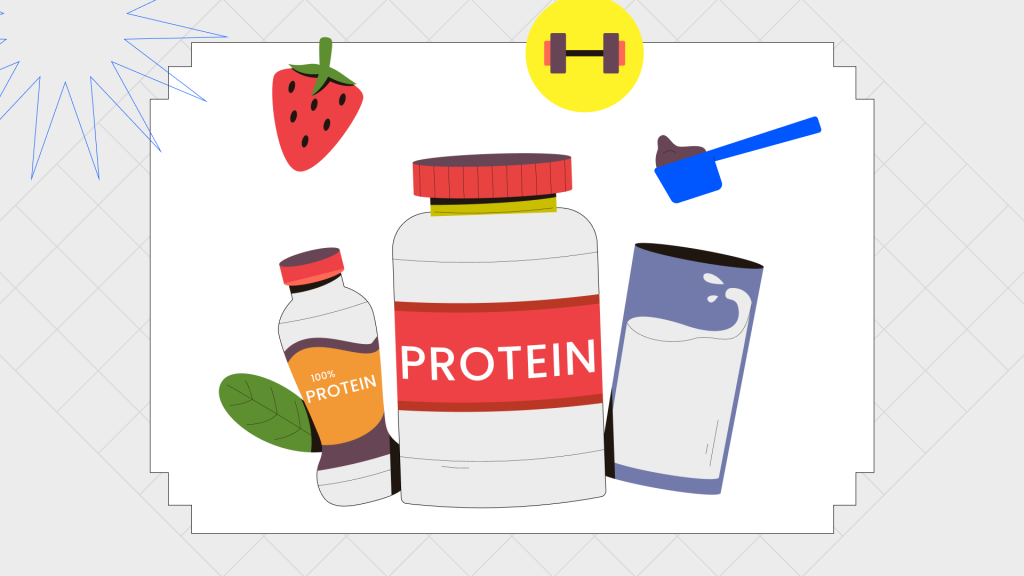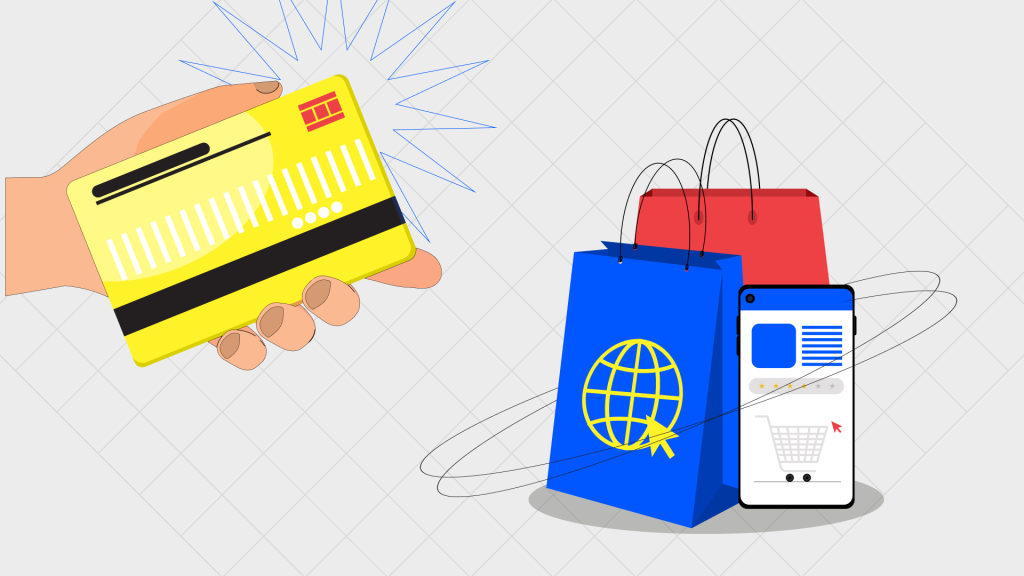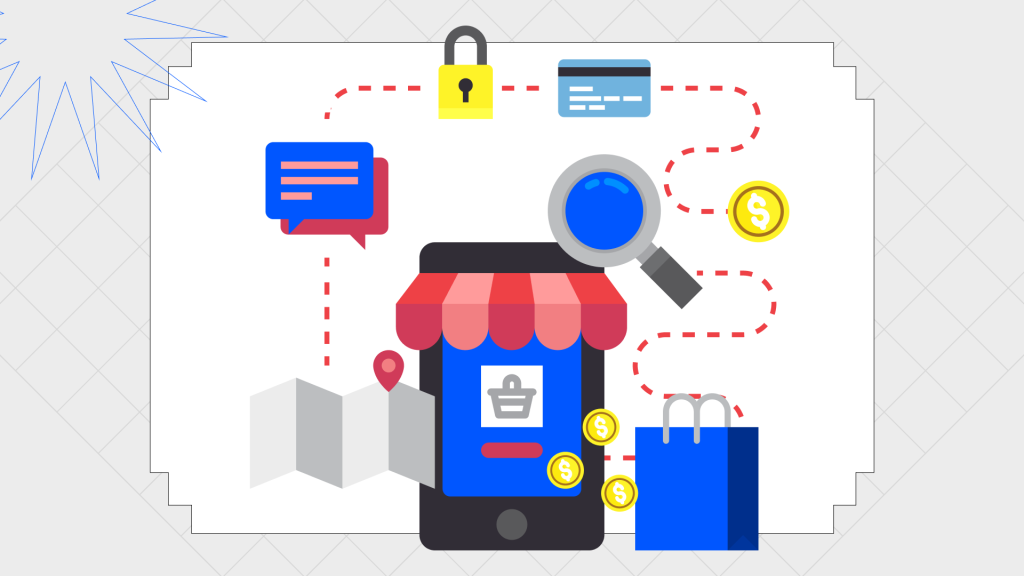The dietary supplements industry is experiencing exponential growth. As health-conscious consumers increasingly turn to online platforms for their wellness needs, selling supplements online has become a lucrative opportunity for entrepreneurs. However, this growth is accompanied by stiff competition, evolving regulations, and the need for precise logistics and fulfillment solutions.
In this guide, we will provide you with actionable insights and strategies, tailor-made for the dietary supplement niche, to help you build a robust online business. From market research and niche selection to supplier relationships and advanced marketing techniques, we will explore every facet of the journey to becoming a successful online supplements retailer. Whether you’re a seasoned ecommerce pro or just starting your entrepreneurial journey, the following pages will equip you with the knowledge and tools needed to thrive in this ever-expanding digital marketplace.

7 Steps to Start Selling Supplements Online
1. Market Research
Before diving into any ecommerce venture, thorough market research is imperative. In the case of selling supplements online, understanding the industry trends, target audience, and your competitors is crucial. Here’s how to get started with market research:
Identify Your Niche
Find a specific niche within the supplement industry, such as sports nutrition, weight loss, diabetic or dietary supplements. This will help you tailor your product offerings to a specific audience.
Know Your Competitors
Analyze your competitors to see what products they offer, their pricing strategies, and their marketing efforts. This information will help you differentiate your business.
Understand Regulations
Supplements are subject to regulations, so ensure you comply with the laws and regulations of the regions you plan to sell in.
2. Establish a Strong Online Presence
Building a user-friendly and informative website is paramount. Your online store should reflect the trustworthiness and reliability of your brand. Key factors to consider include:
User-Friendly Website
Ensure your website is easy to navigate, responsive, and optimized for mobile devices.
Product Information
Provide detailed product descriptions, including ingredients, benefits, and usage instructions.
High-Quality Images
Use high-resolution images to showcase your products. Multiple images from various angles can enhance the shopping experience.
Customer Reviews
Encourage satisfied customers to leave reviews. Positive feedback builds credibility.
3. Select Quality Suppliers
The quality of the supplements you sell is directly linked to your business’s reputation. Establish relationships with reputable suppliers. Key points to consider are:
Certifications
Ensure your suppliers meet industry standards and have certifications for quality and safety.
Consistency
Consistency in product quality and availability is crucial. Reliable suppliers are essential for customer satisfaction.
Competitive Pricing
Negotiate favorable terms with suppliers to maintain competitive pricing.
4. Streamline Fulfillment and Logistics
Efficient logistics and fulfillment are essential for a seamless customer experience. Here’s how to optimize these aspects of your business:
Inventory Management
Implement robust inventory management systems to track product levels and ensure timely restocking.
Shipping Options
Offer various shipping options to cater to different customer needs, from standard shipping to expedited delivery.
Returns and Refunds
Create clear and customer-friendly return and refund policies. Make the process as hassle-free as possible.
Customer Support
Provide excellent customer support to address inquiries and resolve issues promptly.
5. Marketing and Promotion
Effectively marketing your online supplement store is key to attracting and retaining customers. Consider the following strategies:
Content Marketing
Create informative blog posts and articles related to health, wellness, and supplements to establish your brand as an authority.
Social Media
Utilize platforms like Instagram, Facebook, and Pinterest to showcase your products, share customer testimonials, and engage with your audience.
Email Marketing
Build a subscriber list and send regular newsletters with promotions, product updates, and health tips.
Pay-Per-Click Advertising
Use Google Ads and other PPC platforms to target potential customers searching for supplements online.
Influencer Partnerships
Collaborate with health and wellness influencers to reach a broader audience.
6. Customer Trust and Security
Security and trust are critical in the ecommerce world. Assure your customers by:
SSL Encryption
Secure your website with SSL certificates to protect customer data.
Payment Options
Offer a variety of secure payment options, including credit cards and trusted third-party payment processors.
Privacy Policy
Clearly outline your privacy policy to reassure customers about the safety of their information.
7. Analyze and Adapt
In ecommerce, data is your best friend. Regularly analyze your website’s performance, sales data, and customer behavior. Use this information to make data-driven decisions and continually improve your online supplement business.
How to Choose the Right Marketplace?
Selecting the right marketplace for selling supplements is a crucial decision that can significantly impact your online business’s success. Here are some key factors to consider when making this choice:
✔ Marketplace Reputation and Trustworthiness
- Choose well-established and reputable marketplaces that have a track record of successful ecommerce operations. Examples include Amazon, eBay, Shopify, and Walmart.
- To check the reputation of a marketplace, you can consult various online sources, including customer reviews on platforms like Trustpilot and Sitejabber, ecommerce forums, and social media communities for seller and buyer feedback. Additionally, consider checking the Better Business Bureau (BBB) for ratings and any reported disputes. Ecommerce news outlets, industry-specific blogs, and a simple Google search for reviews, complaints, or news related to the marketplace can also provide insights.
✔ Audience Size and Demographics
- Research the marketplace’s user base and demographics to ensure it aligns with your target customer profile. For supplements, a health-conscious or fitness-oriented marketplace may be ideal.
✔ Fee Structure
- Analyze the marketplace’s fee structure, including listing fees, transaction fees, and any subscription costs. Different marketplaces have varying pricing models, and these can significantly impact your profitability.
✔ Regulations and Compliance
- Supplements are subject to specific regulations in different regions. Ensure the marketplace you choose complies with these regulations, or that they provide clear guidelines on how to do so.
✔ Visibility and Competition
- Consider how your products will be displayed on the marketplace. Some platforms offer better visibility through featured listings or advertising options. Assess the competition within the marketplace as well
✔ Seller Support and Resources
- Look for marketplaces that offer robust seller support, including access to educational resources, seller forums and dedicated account managers. This can be invaluable for newcomers to ecommerce.
✔ Customer Feedback and Reviews
- Investigate the marketplace’s reputation among sellers. Read reviews and seek feedback from other sellers who have experience in the supplement niche on that platform.
✔ Shipping and Fulfillment Options
- Evaluate the marketplace’s shipping and fulfillment capabilities. Some may have their fulfillment services, while others integrate with third-party logistics providers.
✔ Payment and Transaction Security
- Ensure the marketplace provides secure payment options for customers. This helps in building trust and minimizing issues related to payment fraud.
✔ Customization and Branding
- If you want to establish a unique brand identity, consider whether the marketplace allows for branding and customization of your online store. Some platforms, like Shopify, offer more flexibility in this regard.
✔ International Presence
- If you plan to sell internationally, check if the marketplace supports cross-border selling and whether it has a global reach.
✔ Data and Analytics
- Look for marketplaces that provide robust data and analytics tools. This information can help you make data-driven decisions to optimize your product listings and marketing strategies.
✔ Integration with Ecommerce Tools
- Ensure the marketplace seamlessly integrates with essential ecommerce tools such as inventory management, accounting, automated waybills and marketing software.
✔ Return and Refund Policies
- Clear and customer-friendly policies can impact the customer experience.
✔ Long-Term Viability
- Consider the long-term viability of the marketplace. Is it continuously innovating and adapting to industry changes? A forward-looking marketplace can better support your business over time.
Once you’ve evaluated these factors, you can make an informed decision about which marketplace aligns best with your goals and vision for selling supplements online. Keep in mind that you’re not limited to a single platform, and many successful ecommerce businesses use a multi-channel approach, leveraging multiple marketplaces and their independent ecommerce websites to maximize reach and sales.

How To Choose The Right Fulfillment Partner?
Selecting the right order fulfillment in Europe or in any other region for supplements is crucial to ensure efficient order processing, timely final mile delivery, and a positive customer experience.
Here’s a step-by-step guide on how to choose the right fulfillment service for supplements, along with some differences to consider when compared to other product categories:
1. Regulatory Compliance
- Supplements are subject to various regulations and quality control standards. Ensure that the fulfillment center in Germany or in any other country you choose is well-versed in handling products that require compliance with FDA and other relevant health regulations.
2. Quality Control
- Quality and safety are paramount in the supplement industry. Look for a fulfillment center in Europe or in any other region that prioritizes quality control, including proper storage, handling, and inventory management in european warehouses to prevent contamination or product degradation.
3. Experience in Supplement Fulfillment
- Choose a fulfillment provider with a proven track record in handling supplements specifically. They should have experience shipping these products to ensure they understand the unique challenges involved.
4. Inventory Management
- Efficient inventory management is crucial for supplements, which may have expiration dates. The fulfillment center in Spain or in any other country should have systems in place to monitor and manage stock levels to prevent issues like product spoilage or stockouts.
5. Shipping Options
- Consider the shipping options provided by the fulfillment service. Ensure they offer a variety of shipping methods to meet the diverse needs of your customers, such as standard shipping, express delivery, and international shipping for global customers.
6. Returns and Exchanges
- Develop clear and customer-friendly return and exchange policies in collaboration with the fulfillment center in the USA or in any other country. Make sure they can efficiently process returns and manage product recalls if needed.
7. Packaging Expertise
- Supplements may require special packaging to prevent damage or tampering. Confirm that the fulfillment service has the capability to provide secure and tamper-evident packaging.
8. Shipping Costs and Locations
- Consider the fulfillment center’s location and how it may impact shipping costs and times. If you want to sell in Italy, then you should look exactly fulfillment center in Italy. A strategically located center can reduce shipping expenses and improve delivery times, which can be crucial for supplements with short shelf lives.
9. Scalability
- Choose a fulfillment service that can scale with your business. As your supplement business grows, you’ll need a partner that can accommodate increased order volumes and expanding product lines.
10. Customer Support
- Adequate customer support is crucial, especially when dealing with products that can have a significant impact on health. The fulfillment center should have responsive customer service to handle inquiries and concerns promptly.
11. Integration with Ecommerce Platforms
- Ensure that the fulfillment service can seamlessly integrate with your ecommerce platform, allowing for real-time order processing, tracking, and inventory management.
12. Compliance with Dietary Supplement Laws
- Dietary supplements often have specific labeling and disclosure requirements. Verify that the fulfillment center can adhere to these legal standards, ensuring your products are compliant when they reach customers.
13. Tracking and Reporting
- Access to accurate tracking and reporting tools is essential. The fulfillment service should provide real-time data on orders, inventory levels, and shipping status to help you make informed decisions.
14. Cost Structure
- Understand the pricing structure of the fulfillment service, including storage fees, pick-and-pack charges, and shipping costs. Ensure that it aligns with your budget and business model.
Choosing the right fulfillment service for supplements requires a specialized understanding of the industry’s unique challenges and requirements. Prioritize compliance, quality control, and efficient order processing to maintain the integrity of your supplement products and ensure customer satisfaction.

Conclusion
Selling supplements online can be a profitable and rewarding venture, but it requires careful planning and dedication. With the guidance provided in this Ultimate Guide, you are well on your way to establishing a successful online supplement business. Remember that continuous learning and adaptation are the keys to long-term success in the ever-evolving world of ecommerce. Good luck on your journey to becoming a trusted source for high-quality supplements in the digital marketplace.




 Community
Community
